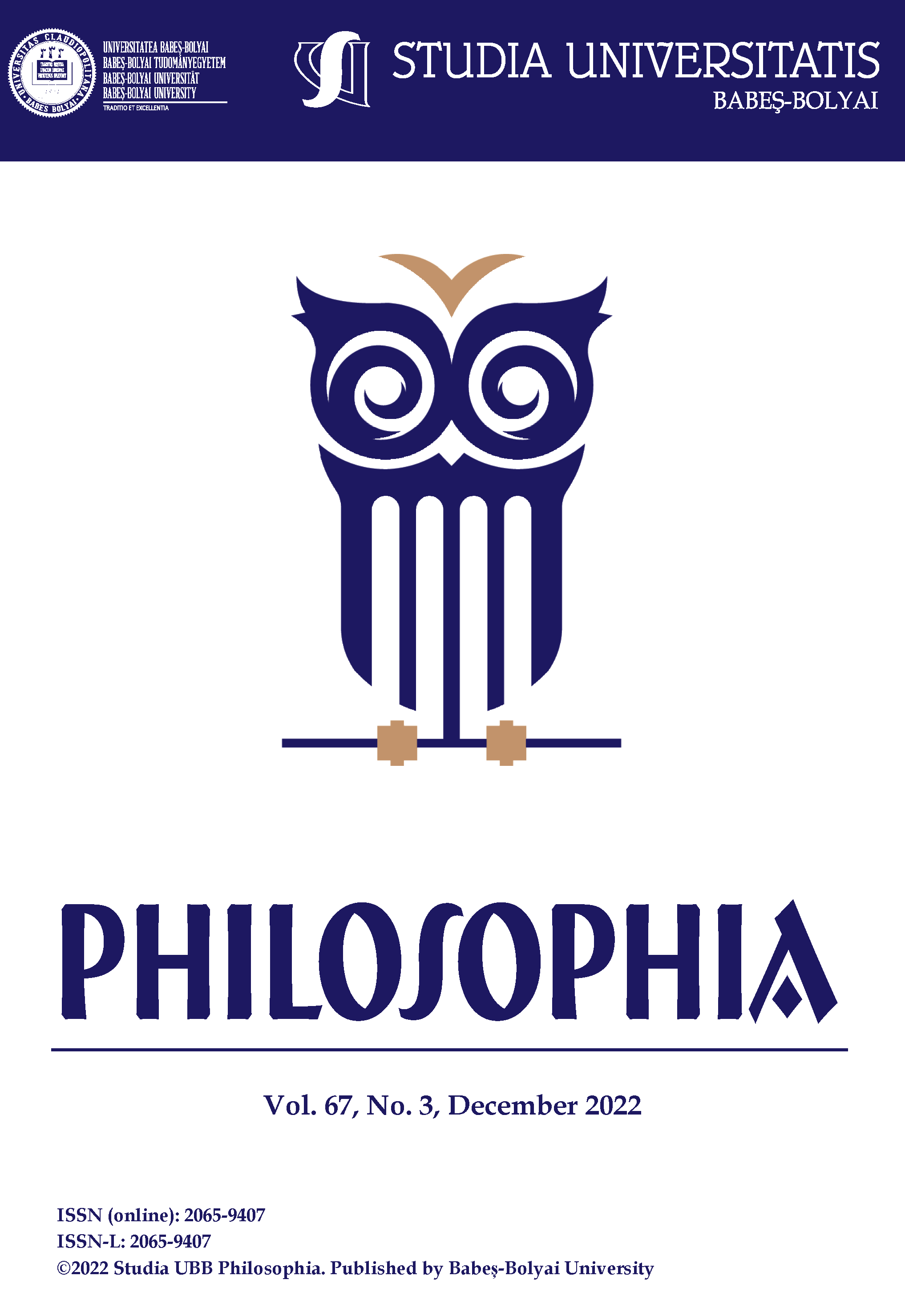PATHWAYS TO INTERACTIONS IN PHILOSOPHICAL TRAINING: DEWEY’S EDUCATIONAL PHILOSOPHY AND EMBODIED LEARNING
DOI:
https://doi.org/10.24193/subbphil.2022.3.03Keywords:
education, experience, interaction, philosophy, John DeweyAbstract
This paper builds on John Dewey’s views on interactions to suggest pathways for enriching the study of philosophy. Along with the notions of body-mind and organism-environment transactions, interactions are part of a philosophical project with transformative implications for education as well. The first part of the paper will contextualize Dewey’s discussion of interactions with regard to his philosophy of experience and democratic theory. The second one will propose two criteria with regard to enriching philosophical training in ways that engage the mind and the body - increasing sociocultural awareness and generating integrative learning experiences – and will add a few examples of how the study of philosophy could benefit from applying an interactionist perspective.
References
Clark, C., Misery and Company. Sympathy in Everyday Life, University of Chicago Press, 1997.
Dewey, J., The Child and the Curriculum and The School and Society, University of Chicago Press, 1956.
Dewey, J., Democracy and Education. An Introduction to the Philosophy of Education, Aakar Books, 2004.
Dewey, J., Reconstruction in Philosophy, Henry Holt & Co., 1920.
Dewey, J., Art as Experience, Perigee Books, 1980.
Dewey, J., Experience and Education, Touchstone, 1997.
Dewey, J., “On Industrial Education”, Curriculum Inquiry, 7(1), 1977, 53-60.
Dewey, J., Bentley, Arthur F., “Interaction and Transaction”, The Journal of Philosophy 43(19), 1946, 505-517.
Durst, A., Women Educators in the Progressive Era. The Women behind Dewey’s Laboratory School, Palgrave Macmillan, 2010.
Edwards, B., The New Drawing on the Right Side of the Brain, Tarcher/Putnam, 1999.
Jay, M., “Somaesthetics and Democracy: Dewey and Contemporary Body Art”, Journal of Aesthetic Education, 36 (4), 2002, 55-69.
Hein, G.E., “John Dewey and Museum Education”, Curator 47/4, 2004, 413-427.
Hein, G.E., “John Dewey’s “Wholly Original Philosophy” and its Significance for Museums”, Curator 49/2, 2006, 181-203.
Laner, I., “Reflective interventions: Enactivism and phenomenology on ways of bringing the body into intellectual engagement”, Phenomenology and the Cognitive Sciences 20, 2021, 443-461.
Nussbaum, M. C., Political Emotions: Why Love Matters for Justice, Harvard University Press, 2013.
Orwell, G., Down and Out in Paris and London, Penguin Books, Electronic Edition, 2001.
Papuc, I., “ Bioart – A New Challenge in Contemporary Art”, Studia UBB Philosophia, vol 64 (2019), Special Issue, 141-170, DOI: 10.24193/subbphil.2019.spiss11
Rawls, J., A Theory of Justice. Revised Edition, Harvard University Press, 1999.
Srinivasan, A., “The Politics of Compassion”, in Brooks, T. (Ed.), Political Emotions. Towards a Decent Public Sphere, Palgrave Macmillan, 2022, 99-114.
Downloads
Published
How to Cite
Issue
Section
License
Copyright (c) 2022 Studia Universitatis Babeș-Bolyai Philosophia

This work is licensed under a Creative Commons Attribution-NonCommercial-NoDerivatives 4.0 International License.





